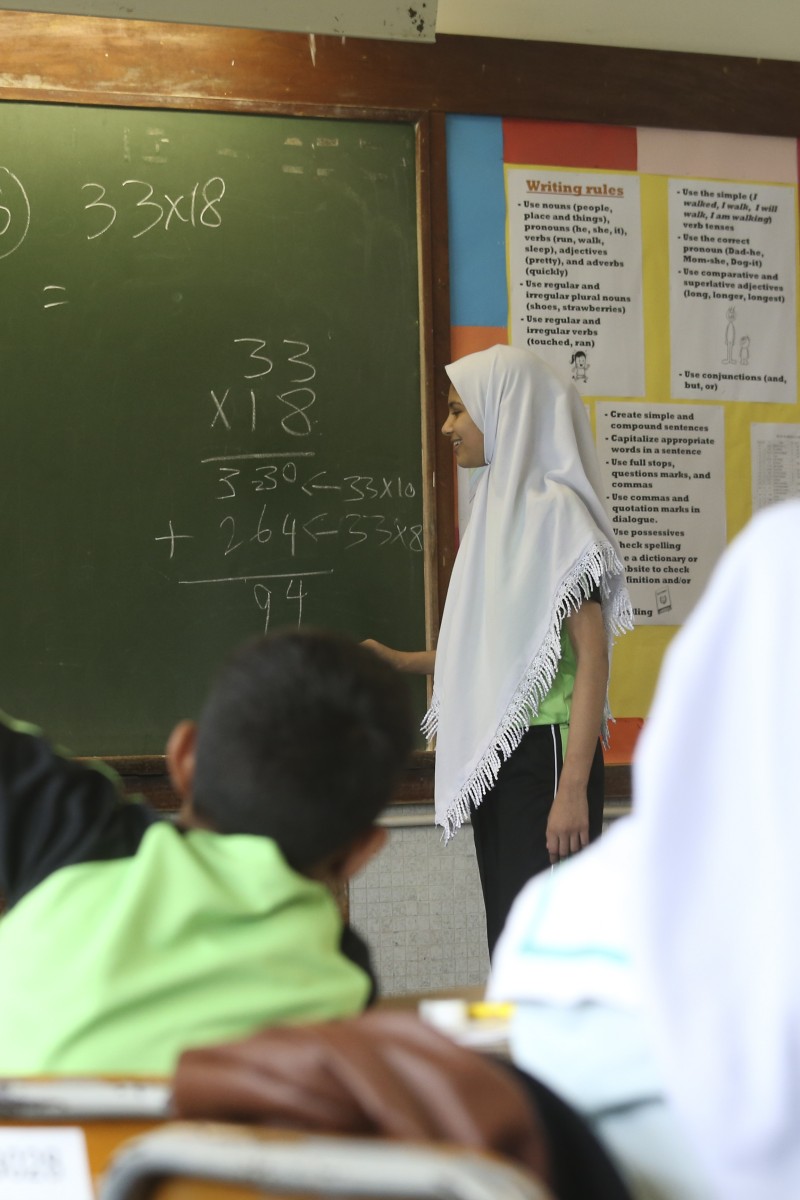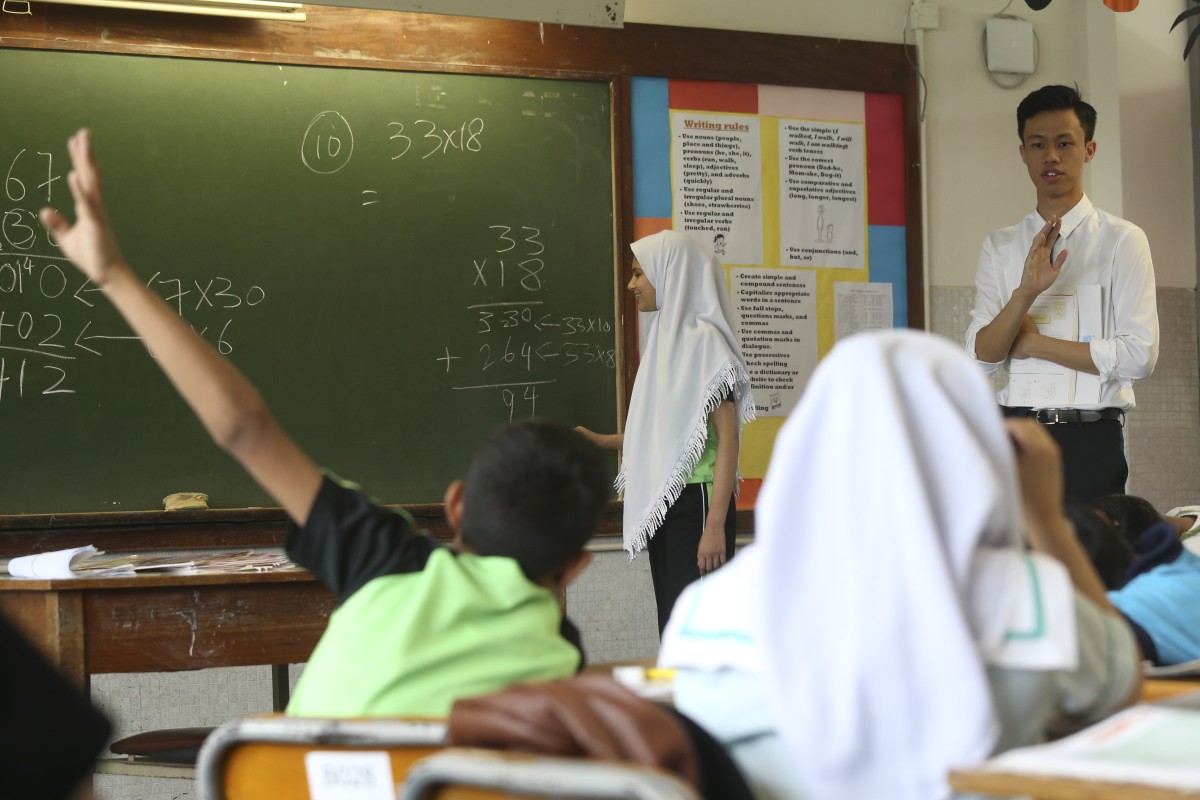
Hong Kong's ethnic minority students need more government funding and Cantonese-learning resources, says anti-discrimination group
The Equal Opportunities Commission says specialised materials and teacher training are required to meet the needs of non-Chinese-speaking students
 Equal opportunities officer Raymond Ho says a native Chinese teacher may not be able to meet the language requirements of a non-native student.
Equal opportunities officer Raymond Ho says a native Chinese teacher may not be able to meet the language requirements of a non-native student.The Equal Opportunities Commission, Hong Kong's anti-discrimination watchdog, has called for government funding to develop a special Chinese-learning curriculum for ethnic minority students and to train teachers in helping non-Chinese-speaking students learn the language more effectively.
The commission said the inadequacies in the current government measures, which have been going on for years, had deprived many members of the ethnic minority community of better education and job opportunities, preventing their upward social mobility.
The commission’s calls came as it released its latest report on education for ethnic minorities, which looked at the government’s efforts in the area since 2011.
Ethnic minority students in Hong Kong lack Cantonese support in schools
While the government had introduced some support measures, the commission said “uncertainties and inadequacies” remained in the policies and their implementation, pointing to a lack of systematic training of teachers.
“Many schools just ask the Chinese teacher to teach the language to ethnic minority students. But teaching Chinese as a second language is a totally different thing. A native Chinese teacher may not understand what the non-Chinese-speaking students need,” senior equal opportunities officer Raymond Ho Wing-keung said.
Ho also said there was a lack of teaching materials and textbooks for both teachers and students in the market, caused by inadequate government support.
The commission asked for the development of a “full-fledged Chinese-as-a-second-language curriculum complete with specific pedagogy, corresponding teaching tools and textbooks, and systematic teacher training”.
After the commission’s last report on the issue in 2011, the government in 2014 announced a series of measures to step up educational support for ethnic minority students, including additional funding to schools admitting 10 or more ethnic minority students. In addition, a practical Chinese test was introduced to offer them alternative Chinese language qualification.
In the 2014-15 school year, the government also introduced the “Chinese Language Curriculum Second Language Learning Framework”, to encourage teachers to set targets to help ethnic minority students learn Chinese.
But concern groups have criticised the framework as useless allegedly because of a lack of a formal indicator to measure the progress of the students and standard of their proficiency.
What's it like to grow up as an ethnic minority in Hong Kong?
A study by the Hong Kong Policy Research Institute released in March found that ethnic minority students could understand only 70 per cent of what was being taught in class because Chinese was the major medium of instruction in schools.
The problem resulted in low university enrolment rates for such students, with ethnic minority students accounting for only 1.4 per cent of the total 2016-17 intake in Hong Kong’s higher education institutes, according to the study.
Professional Teachers’ Union president Fung Wai-wah also said there should be more training for teachers. “Sporadic one-off training workshops are far from enough,” Fung said.
Rizwan Ullah, convenor of the commission’s working group on education for ethnic minorities, said: “Education is a protected area of the [Racial Discrimination Ordinance]. It is the government’s responsibility to provide equal educational opportunities to the members of the [ethnic minority] community.”
“Education issues of ethnic minorities have long been a strategic priority area for us, given that it is an effective means of empowerment,” said the commission’s chairperson Ricky Chu Man-kin.
